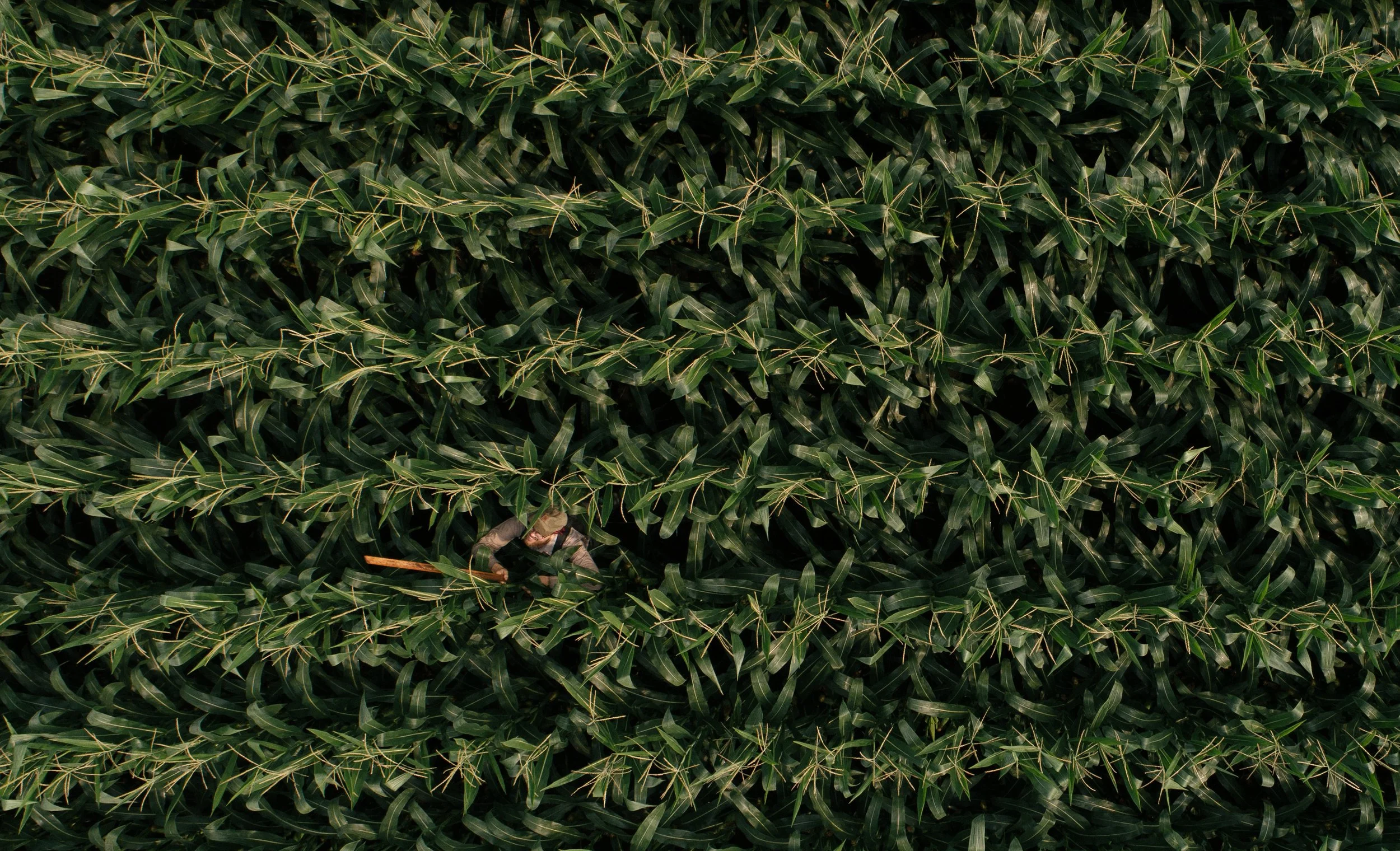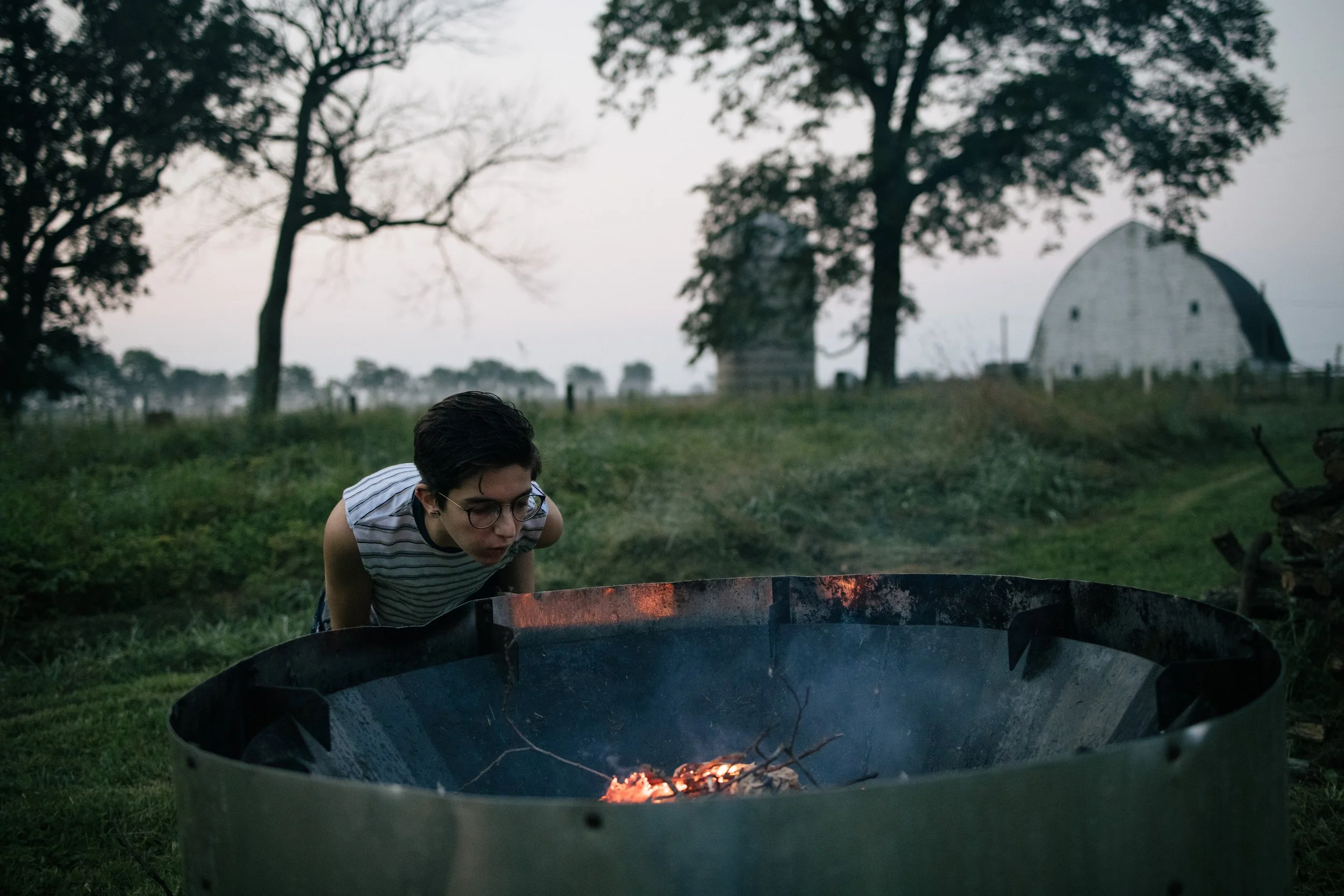Gavi Welbel, cofounder and Research Coordinator of Zumwalt Acres, examines a tube while studying the PH balance of soil at the farm. Gavi Welbel and her twin sister Remi are the youngest generation of Zumwalts to work the farm.
Zumwalt Acres
Twins Gavi and Remi Welbel returned to their Illinois family farm to practice regenerative farming and conduct research on climate change mitigation with other young farmers and scientists-in-training.
Growing up in Chicago, Gavi and Remi Welbel loved to visit their grandparents’ farm in eastern Illinois. They gathered for meals around the farmhouse table and chased cousins through acres of corn and soy.
Their young, rural relatives were expected to continue farming, but most moved to cities for more reliable livelihoods. After their grandparents died, the house sat empty for years.
Iroquois County, where the Welbels farm, is entrenched in industrialized farming, a large-scale system that relies on monocrops like corn and soy and can lead to degraded soil, polluted water and the loss of biodiversity. It also requires fewer people to work the land, which drives population decline and business closures.
In 2020, the Welbels returned to establish Zumwalt Acres as a research farm. They also built relationships with neighboring farmers.
“There is common ground between regenerative farmers and conventional farmers,” Gavi said. “They care about the soil. They also care about their livelihood, and they care about the vitality of their community that they've seen stripped away by industrial agriculture.”
Apprentice farmers live communally in the Zumwalt family farm house.
From right, Gavi Welbel and Hannah Kahn Glass lead a group meeting before a day filled with farm work.
Tomatoes ripen in the greenhouse.
Zumwalt Acres apprentice and Loyola University-Chicago graduate Eric Luu harvests chard for lunch.
At Zumwalt Acres, apprentices live together in the Zumwalt family farm house, cooking vegetarian meals made using the crops they grow.
Zumwalt Acres apprentice and Carlton College graduate Tuomas Sivula measures the height of corn stalks while gathering soil samples as part of research on how basalt and biochar can improve soil quality, mitigate a farm’s carbon footprint and grow healthier and more productive crops.
Zumwalt Acres apprentice and Washington University student Stephanie Berger sets up a tree tube to protect young saplings from pests or other dangers. The apprentices planted 1,066 trees in the spring and are studying the affects of biochar on their growth and health.
In the midst of the Covid-19 pandemic, recently laundered face masks hang to dry outside of the Zumwalt Acres farmhouse where the apprentices live.
Remi Welbel, cofounder and Education Coordinator of Zumwalt Acres, harvests Dinosaur Kale. Remi and her twin sister Gavi are the youngest generation of Zumwalts to work the farm.
Zumwalt Acres apprentice and Brown University student Jesse Miller brings fresh vegetables to the Sheldon Area Food pantry.
Zumwalt Acres apprentice Joey Finnegan leaps down from a trailer where he’s building a refrigerator to store vegetables grown on the farm.
From left, Hannah Kahn Glass, Gavi Welbel and Remi Welbel eat dinner together after a long day of work on the farm. The Welbels are the youngest generation of Zumwalts to work the farm.
Zumwalt Acres apprentice and Washington University student Stephanie Berger starts a fire to create biochar, an indigenous, carbon-rich soil additive.















